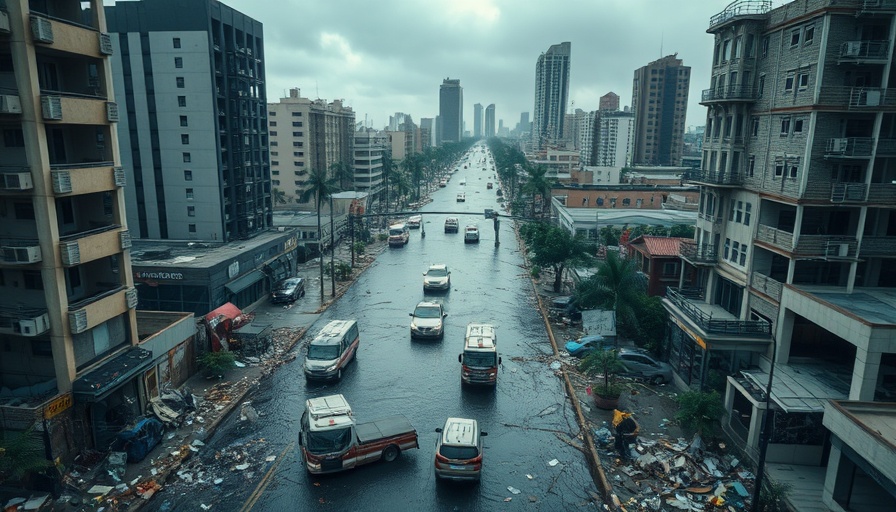
How Climate Change Affects Your Medicine Supply: A Growing Concern
As South Carolinians, we are no strangers to hurricanes, floods, and fires. But as devastating as these disasters are for our homes and lives, they also pose a significant risk to our health care systems. A recent study published in the journal JAMA highlights a pressing concern: nearly two-thirds of U.S. drug production facilities are located in regions prone to major disasters. This alarming statistic forces us to consider the long-term implications of climate change on our medical supply chains.
Understanding the Vulnerabilities in Pharmaceutical Production
The impact of climate-driven disasters can be seen in incidents like Hurricane Helene, which devastated a crucial manufacturing facility for intravenous fluid bags. When natural disasters strike, these facilities can be forced to halt production, leading to shortages of essential medical supplies like saline solutions that are vital for patient care. In a state where many residents rely on these life-saving medications, the importance of resilient supply chains cannot be overstated.
Why Does This Matter to South Carolina Residents?
For those living in the Palmetto State, understanding the direct link between climate change and health care supplies is crucial. With hurricanes being a common occurrence, residents should be aware that disruptions in pharmaceutical production can lead to serious consequences. Whether you’re undergoing treatment or have loved ones relying on medication, a shortage of vital supplies can create anxiety and uncertainty in medical decision-making.
Future Predictions: How Climate Change will Influence Medicine Availability
Experts are predicting that as climate change escalates, the frequency and intensity of such weather-related disasters will increase. This means the likelihood of future shortages in pharmaceutical supplies also rises. With the Trump administration pushing for increased U.S. drug manufacturing, South Carolinians may wonder if domestic facilities can keep up with the increased demand and withstand the ominous climate threats. This is particularly concerning when we learn that approximately 80% of active pharmaceutical ingredient components still come from abroad.
Practical Insights for Residents: What You Can Do
Staying informed is the first step towards safeguarding your health. Residents can advocate for stronger infrastructure that withstands climate events and ensure that local pharmacies and hospitals are well-stocked and prepared for emergencies. Additionally, always keep track of personal medications and stock up on necessary items before a storm hits.
Final Thoughts: The Need for Community Awareness
As we face the realities of climate change, it’s essential for South Carolina residents to keep abreast of how these challenges affect medicine supply chains. By prioritizing knowledge, participating in community discussions, and advocating for better supply chain management practices, we can work together to prepare for future crises that put our health at risk.
In conclusion, navigating through the complexities of insurance claims and services during such catastrophic events adds another layer of urgency for individuals and families. Awareness can only strengthen our preparedness and response in the face of disaster. Pay attention to how insurers handle claims and the specific challenges that arise during times of crisis.
 Add Row
Add Row  Add
Add 




Write A Comment